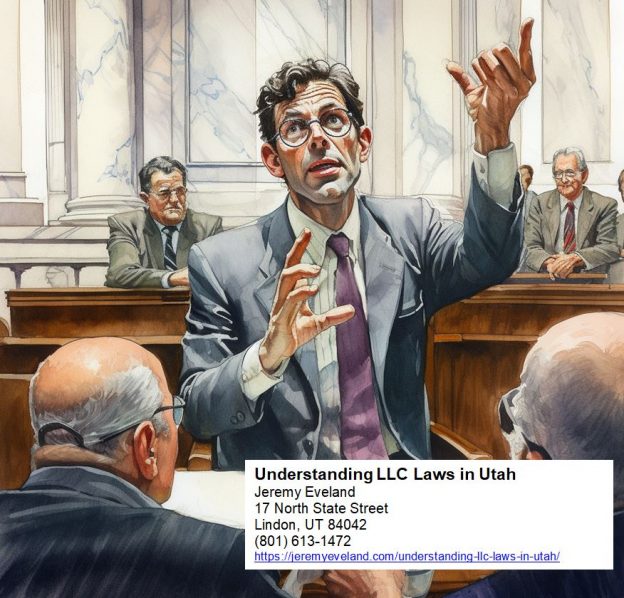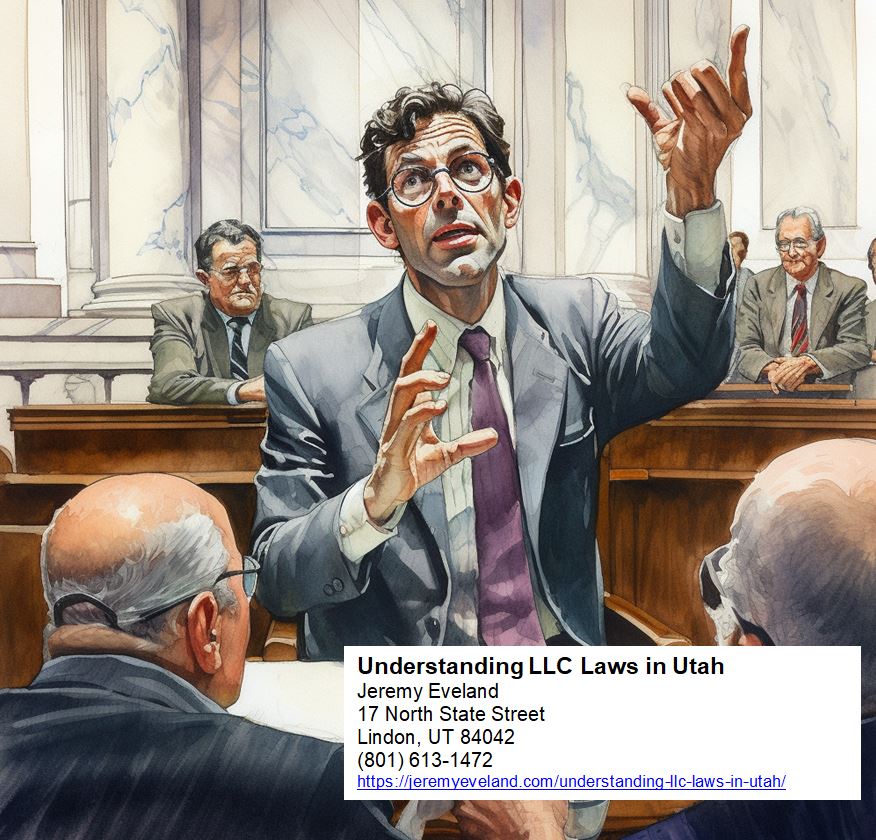When going through a divorce, one of the major concerns is how to divide your retirement accounts. It’s a complex and emotional process, but with the help of an experienced attorney, you can navigate through it smoothly. In this article, we will address common legal concerns regarding the division of retirement accounts, providing reassurance and guidance. We will explore important information so you can make informed decisions and create emotional connections to understand the impact this division may have on your future. By optimizing our content for search engines, we aim to provide comprehensive and exhaustive articles about this topic, incorporating all relevant keywords. Our ultimate goal is to make you feel compelled to call our lawyer for a consultation. Stay tuned for helpful insights and answers to frequently asked questions at the end of the article.
Why Retirement Account Division is Important in Divorce
Divorce is a complex and emotional process, and one aspect that often requires careful attention and consideration is the division of retirement accounts. Retirement account division is important in divorce for several reasons, including the fact that these accounts are often significant assets that hold considerable financial value. In addition, retirement accounts are often considered marital property, meaning that they are subject to division during the divorce process. The impact of retirement account division on financial security post-divorce cannot be underestimated, as it can greatly affect both parties’ ability to rebuild their lives and establish a secure retirement.
Understanding the significance of retirement account division in divorce
Retirement account division is of great significance in divorce because retirement accounts are often one of the largest and most valuable assets owned by a couple. These accounts can include 401(k) accounts, pension plans, annuities, IRAs, Roth IRAs, and even military pensions. As such, they hold a significant amount of financial value that needs to be carefully allocated and divided between the spouses. Proper division of retirement accounts ensures that both parties receive their fair share of the assets accumulated during the marriage, which is an essential aspect of achieving a fair and equitable divorce settlement.
How retirement accounts are considered marital property
In most jurisdictions, retirement accounts acquired during the marriage are considered marital property and are subject to division in divorce. Marital property refers to assets and debts acquired during the marriage, regardless of how the account is titled or whether both spouses contributed to the account. This means that even if only one spouse is listed as the account holder, the other spouse may still be entitled to a portion of the account’s value. It is important to note that any retirement funds accrued prior to the marriage, or after the date of separation, may be considered separate property and may not be subject to division.
The impact of retirement account division on financial security post-divorce
Retirement account division has a significant impact on the financial security of both parties post-divorce. For the spouse who did not contribute to the retirement account or has fewer assets overall, receiving a fair share of the retirement account can provide essential financial support and stability. It allows them to start rebuilding their own retirement savings and ensures their future financial well-being. On the other hand, for the spouse who has a significant amount of retirement savings, the division of retirement accounts may mean a reduction in their overall retirement nest egg. However, it is important to remember that divorce is a division of assets, and ensuring a fair and equitable division of retirement accounts is crucial in maintaining financial security for both parties in the long run.
Types of Retirement Accounts and Their Division
When it comes to retirement account division in divorce, it is essential to understand the different types of retirement accounts and how they are divided. Here are the main types of retirement accounts and guidelines for their division:
Exploring different types of retirement accounts
There are several types of retirement accounts that individuals may have, including 401(k) accounts, pension plans, annuities, IRAs, Roth IRAs, and military pensions. Each type of account has its own rules and regulations regarding division, and it is important to be aware of these specifics during the divorce process.
Guidelines for dividing 401(k) accounts in divorce
401(k) accounts are employer-sponsored retirement plans that allow employees to save for retirement on a tax-advantaged basis. When it comes to dividing a 401(k) account in divorce, a Qualified Domestic Relations Order (QDRO) is often required. A QDRO is a court order that outlines how the retirement account will be divided between the spouses. It is important to involve a qualified attorney or financial expert to ensure that the division of the 401(k) account is done properly and in compliance with the law.
Dividing pension plans and annuities in divorce
Pension plans and annuities are retirement accounts that provide a fixed sum of money to individuals upon retirement. The division of pension plans and annuities in divorce can be complex, as there are various methods for calculating the present value of these accounts and determining the fair division between the spouses. It is crucial to consult with a financial expert or actuary to accurately value and divide these types of retirement accounts.
Dividing IRA accounts in divorce
Individual Retirement Accounts (IRAs) are personal retirement accounts that individuals can contribute to on their own, often outside of their employment. The division of IRA accounts in divorce can be relatively straightforward, and often involves a transfer of funds or assets from one spouse’s IRA to the other spouse’s IRA. It is important to consult with a tax professional or financial advisor to ensure that the division is done in a manner that maximizes tax advantages and minimizes penalties.
Dividing Roth IRA accounts in divorce
Roth IRA accounts are similar to traditional IRAs, but differ in that contributions are made with post-tax dollars and qualified distributions are tax-free. Dividing Roth IRA accounts in divorce follows similar principles as dividing traditional IRAs. However, it is crucial to consider any tax consequences or penalties associated with the division, as Roth IRAs have specific rules and regulations regarding withdrawals and distributions.
Special considerations for division of military pensions
Dividing military pensions in divorce involves its own set of considerations and rules. The Uniformed Services Former Spouses’ Protection Act (USFSPA) allows state courts to distribute military pensions as marital property during divorce. Each branch of the military has specific rules and regulations regarding the division of pensions, and it is important to consult with an attorney who specializes in military divorces to ensure compliance with these rules.
Determining the Value of Retirement Accounts
Determining the value of retirement accounts is a critical step in the division process, as it directly impacts how the accounts will be divided. Accurate valuation is essential to ensure a fair and equitable division. Here are some important factors and methods for valuing retirement accounts in divorce:
Understanding the importance of accurate valuation
Accurate valuation of retirement accounts is crucial to ensure that both parties receive their fair share of the assets. Improper valuation can lead to an inequitable distribution of assets, and potentially leave one spouse at a financial disadvantage. It is recommended to work with a qualified financial expert or forensic accountant who specializes in valuing retirement accounts to ensure an accurate assessment.
Methods for valuing retirement accounts in divorce
There are several methods for valuing retirement accounts in divorce, depending on the type of account. Commonly used methods include the present value method, the coverture fraction method, and the immediate offset method. Each method has its own advantages and disadvantages, and it is important to consult with a financial expert to determine the most appropriate method for valuing a specific retirement account.
Valuing 401(k) accounts
Valuing a 401(k) account in divorce is typically done by obtaining a statement of the account balance as of the date of separation or the date of valuation. This balance can then be divided between the spouses according to the terms outlined in the QDRO. It is important to update the valuation to reflect any changes in the account balance before finalizing the division.
Valuing pension plans and annuities
Valuing pension plans and annuities can be more complex, as it often requires the expertise of a financial professional or actuary. The present value method is commonly used to determine the value of these accounts, taking into consideration factors such as the expected retirement date, life expectancy, interest rates, and future payments.
Valuing IRA and Roth IRA accounts
Valuing IRA and Roth IRA accounts is relatively straightforward, as the account balances can be easily obtained from statements provided by the financial institution. It is important to ensure that the valuation reflects the account balances as of the date of separation or the date of valuation, as these accounts can fluctuate in value.
Factors Affecting Retirement Account Division
Several key factors influence the division of retirement accounts in divorce. These factors help determine how the accounts will be allocated between the spouses and can greatly impact the overall outcome of the division. Here are some important factors to consider:
Length of the marriage
The length of the marriage is an important factor in retirement account division. In general, the longer the marriage, the greater the likelihood that retirement accounts will be considered marital property and subject to division. However, the laws regarding the division of retirement accounts vary among jurisdictions, and it is important to consult with an attorney familiar with the laws in your specific jurisdiction.
Earning capacity and financial needs of each spouse
The earning capacity and financial needs of each spouse are important considerations in retirement account division. If one spouse has a significantly lower earning capacity or limited financial resources, they may be entitled to a larger share of the retirement accounts to help ensure financial stability post-divorce.
Tax implications of division
The tax implications of division can greatly impact the overall value of retirement accounts. It is important to consider any tax consequences or penalties associated with the division of retirement accounts, as well as any potential tax advantages or disadvantages that may arise. Consulting with a tax professional or financial advisor can help ensure that the division is done in a manner that maximizes tax benefits.
Marital waste and asset dissipation
Marital waste and asset dissipation are also important factors to consider in retirement account division. If one spouse has engaged in reckless spending or dissipation of assets prior to or during the divorce process, it may impact how retirement accounts are divided. Evidence of marital waste or asset dissipation can be presented to the court to support a request for an equitable division of assets.
Legal Process and Procedures for Retirement Account Division
The legal process for dividing retirement accounts in divorce can vary depending on the jurisdiction and the specific circumstances of the case. However, there are several general procedures and considerations that are commonly involved in retirement account division. Here is an overview of the legal process:
Preparing the necessary legal documentation
The first step in the legal process for retirement account division is to prepare the necessary legal documentation. This typically includes preparing the petition for divorce, financial affidavits, and any other required court forms. It is important to provide accurate and detailed information regarding the retirement accounts, including current balances, contributions, and any outstanding loans or loans against the accounts.
Mediation and negotiation for amicable division
In many cases, couples are able to reach an agreement on the division of retirement accounts through mediation or negotiation. Mediation is a voluntary process in which a neutral third party helps facilitate communication and negotiation between the spouses. It can be a cost-effective and efficient way to resolve disputes and reach a mutually acceptable division of retirement accounts.
Going to court for division orders
If mediation or negotiation fails to produce a resolution, the next step is to go to court for division orders. This involves presenting the case before a judge, who will make a determination regarding the division of retirement accounts based on the evidence and arguments presented. It is crucial to have proper legal representation to effectively advocate for your interests and protect your rights during this process.
Enforcement of division orders
Once division orders are issued by the court, it is important to ensure that they are properly enforced. This may involve working with financial institutions or retirement account administrators to facilitate the transfer of funds or assets between the spouses. If one party fails to comply with the division orders, additional legal action may be necessary to enforce the orders.
Qualified Domestic Relations Orders (QDROs)
Qualified Domestic Relations Orders (QDROs) play a crucial role in retirement account division, particularly for 401(k) accounts and pension plans. Here is a closer look at QDROs and their importance in the division process:
What is a QDRO?
A Qualified Domestic Relations Order (QDRO) is a court order that outlines how a retirement account will be divided between the spouses. It is necessary for the division of 401(k) accounts and pension plans, as these types of accounts are subject to specific regulations under the Employee Retirement Income Security Act (ERISA). A QDRO must be prepared and approved by the court to ensure that the division is done in compliance with the law.
Requirements for QDRO approval
To be approved by the court, a QDRO must meet specific requirements outlined by ERISA and the Internal Revenue Code. These requirements include the accurate identification of the retirement account being divided, the proper allocation of benefits between the parties, and the inclusion of necessary information regarding the division. It is crucial to work with an attorney experienced in QDRO preparation to ensure that the order meets all necessary criteria for approval.
QDRO process and documentation
The QDRO process involves the preparation and submission of the order to the court. The order should clearly state the percentage or amount of the retirement account that will be allocated to each spouse, as well as any additional instructions or provisions regarding the division. It is important to work closely with an attorney and any necessary financial experts to ensure that the QDRO accurately reflects the division of the retirement account.
Enforcing QDROs
Once a QDRO is approved by the court, it is important to ensure that it is properly enforced. This may involve working with retirement account administrators or financial institutions to facilitate the transfer of funds or assets between the spouses. If one party fails to comply with the terms of the QDRO, additional legal action may be necessary to enforce the order.
Tax Implications of Retirement Account Division
Retirement account division in divorce has important tax implications that need to be carefully considered. Understanding these tax consequences can help individuals navigate the division process and minimize potential tax liabilities. Here are some key considerations:
Understanding the tax consequences of dividing retirement accounts
Dividing retirement accounts in divorce can have tax consequences for both parties. Depending on the type of retirement account and the specific circumstances of the division, individuals may be subject to taxes, penalties, or other tax-related implications. It is important to consult with a tax professional or financial advisor to understand these consequences and plan accordingly.
Tax treatment of different types of retirement accounts
Different types of retirement accounts have different tax treatment. Traditional 401(k) accounts and pension plans are typically funded with pre-tax dollars, meaning that taxes are owed upon withdrawal of the funds. On the other hand, Roth IRAs are funded with after-tax dollars, and qualified distributions are tax-free. Understanding the specific tax implications of each type of retirement account can help individuals make informed decisions during the division process.
Avoiding early withdrawal penalties and taxable events
Dividing retirement accounts in divorce can result in taxable events or early withdrawal penalties if not done properly. It is important to follow the specific rules and regulations for dividing each type of retirement account to avoid these potential pitfalls. For example, when dividing 401(k) accounts, a QDRO is often required to ensure that the division is done in a manner that avoids penalties and taxes.
Tax implications of receiving retirement account funds
Receiving funds from a retirement account as part of a divorce settlement may have tax implications. Depending on the type of retirement account, individuals may owe taxes or face penalties on the distribution they receive. It is important to consider these tax implications when negotiating the division of retirement accounts and consult with a tax professional to understand the potential tax liabilities.
Protecting Your Retirement Accounts in Divorce
Protecting your retirement accounts in divorce is essential to ensure your financial security and future well-being. Here are some strategies to safeguard your retirement savings during the divorce process:
Pre- and postnuptial agreements and retirement accounts
Pre- and postnuptial agreements can be effective tools for protecting retirement accounts in the event of a divorce. These agreements outline the division of assets, including retirement accounts, in the event of divorce or separation. By establishing clear guidelines and expectations regarding the division of retirement accounts, individuals can help protect their savings and financial security.
Consulting with financial advisors and retirement specialists
Consulting with financial advisors and retirement specialists can provide valuable guidance during the divorce process. These professionals can help individuals understand the implications of dividing retirement accounts and develop strategies to protect their savings. They can also offer advice on investment options and other financial considerations to ensure long-term financial stability.
Considering alternative options for division
In some cases, it may be beneficial to consider alternative options for the division of retirement accounts. For example, instead of dividing the retirement accounts directly, individuals may opt for other forms of compensation or asset allocation. This can help minimize potential tax consequences and preserve the overall value of the retirement accounts.
Overcoming Challenges in Retirement Account Division
Retirement account division in divorce is not without its challenges, but with careful planning and expert guidance, these challenges can be overcome. Here are some common challenges and pitfalls to be aware of, as well as strategies for addressing them:
Addressing hidden or undervalued retirement assets
In some cases, one spouse may attempt to hide or undervalue retirement assets in an effort to minimize their share of the division. It is important to work with a qualified attorney and, if necessary, hire financial experts to uncover any hidden or undervalued retirement accounts. Proper legal and financial investigation can help ensure that all assets are accounted for and properly divided.
Negotiating spousal support alongside retirement account division
Retirement account division often goes hand in hand with negotiations for spousal support or alimony. It is important to carefully consider the division of retirement accounts alongside any spousal support obligations. Understanding the financial implications of these decisions can help individuals make informed choices that balance both immediate and long-term financial needs.
Addressing disputes regarding the division of accounts
Disputes regarding the division of retirement accounts can arise during the divorce process. It is important to work with an attorney who specializes in divorce and retirement account division to navigate these disputes effectively. Mediation or negotiation can be effective methods for resolving disagreements and reaching a fair resolution. However, if disputes cannot be resolved amicably, litigation may be necessary to protect your interests.
Frequently Asked Questions about Divorce and Retirement Account Division
What happens to retirement accounts during divorce?
Retirement accounts are considered marital property and are subject to division during divorce. The specific division process depends on the type of retirement account and the laws and regulations of the jurisdiction. However, in general, retirement accounts accrued during the marriage are subject to division, while accounts accrued prior to the marriage or after the date of separation may be considered separate property and not subject to division.
Can I protect my retirement savings in a divorce?
Protecting your retirement savings in a divorce is possible through careful planning and strategic decision-making. Utilizing pre- and postnuptial agreements, consulting with financial advisors and retirement specialists, and considering alternative division options are all strategies that can help safeguard your retirement savings during the divorce process. It is important to work with a qualified attorney who specializes in divorce and retirement account division to ensure that your interests are protected.
How are military pensions divided in divorce?
The division of military pensions in divorce is governed by the Uniformed Services Former Spouses’ Protection Act (USFSPA). This federal law allows state courts to distribute military pensions as marital property during divorce. The division is typically based on the length of the marriage and the overlapping years of military service. It is important to work with an attorney who specializes in military divorces to understand the specific rules and regulations governing the division of military pensions.






















